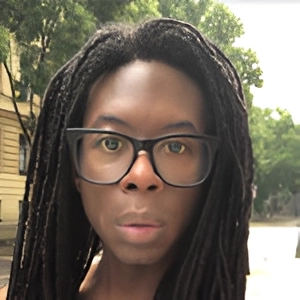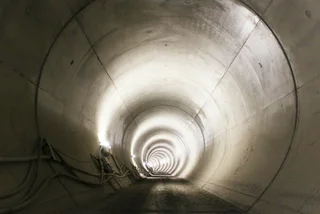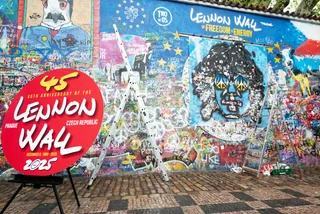Anyone who has ever visited or lived in Prague and has a streaming subscription can easily take a walk down memory lane. Netflix, Amazon, Lionsgate, and Sky have either just wrapped filming large projects in the city or are already showing them on their services. Eagle-eyed viewers can spot their favorite Prague locations in a surprising number of shows.
Prague is a filming location for the Amazon series “Carnival Row” and films like Netflix’s “Extraction 2” and “The Gray Man,” and many more. The city is so popular that Amazon built Jordan Studios as the main hub of operations for its “Wheel of Time” series, which became the most highly anticipated new series to debut on the platform last year. Film production in Prague is definitely here to stay. But what makes the Czech capital such an attractive destination for the industry?
Tariq Hager, the co-founder of Prague Film School has a hunch. Together with his colleague Tomas Krasauskas, Hager launched the school in 2004. At the time, it was called the Prague Institute for Further Education, and it offered evening courses in the arts and humanities. Today the school welcomes over 200 students from all over the world, and is a leading destination for studying film and acting in Europe.
On a tour of the school, Hager explained the city’s appeal. “I guess above all, it's still affordable. It’s much more expensive than it was, but it's still an affordable place, as opposed to the United States or Western Europe where you would have to multiply the budget by two or three times. The other thing is, of course, locations. You have every type of background imaginable. You can shoot medieval, rococo, Viennese, urban chic, or just under a bridge. Prague has a rich film legacy.”
That legacy is supported by a solid infrastructure fueled in part by PFS. The school offers access to every type of prop or costume imaginable. And what isn’t immediately available, the staff knows how to get. The campus is also a hidden gem in the city.
Easily missed from the street, the inside is a labyrinthine structure that encompasses two buildings. And the space is as dramatic and mysterious as some of the films the students produce, complete with secret doors and staircases that lead to literally nowhere.
Climbing the stairs to the attic level of the main building, Hager proudly revealed that the top floor was registered as an official art cinema, one of the historical locations where Prague’s countless film festivals held their features.
He ran his hand across a beam. “Feel that. Seventeenth century wooden pegs instead of nails to hold it together, and it was varnished with bull’s blood. This building is a UNESCO-protected World Heritage Site. So during the renovations, we had to leave certain elements intact.”
Even Covid didn’t seem to dampen his enthusiasm for the school and for cinema. He briefly reflected on the early days of the pandemic. “Yeah, it was heartbreaking really. But natural selection gave us these really fantastic students who are courageous and wouldn't let the cloud of Covid scare them away from doing what they want to do.”
Because PFS knew virtual classes were no substitute for the practical experience that they promised their students, during the first lockdown in March 2020, faculty adhered to a grueling schedule of online lectures between 9 a.m. and 9 p.m. but gave students film projects to keep them engaged with the school and with each other.
“To combat that isolated feeling. Give them some sense of solidarity, or a way to express how they felt about the situation,” Hager said. At the height of the pandemic, instructors even went so far as to deliver editing stations to students’ apartments.
The dedication paid off. The campus is slowly returning to pre-pandemic conditions. Students are gradually refilling classrooms, common areas, and sets across the campus. They are also a remarkably diverse group. Over 30 countries are represented, and it’s not uncommon to see students in their 20s or their 40s. The school is designed to accommodate people at the start of their professional lives as well as those who are finding their own second act.
Given the devastation felt by many employment sectors due to Covid, that latter is very important. People dissatisfied with their pre-pandemic work in office administration or hospitality are exploring newfound passion for creative endeavors. Couple that with the explosion of jobs in the film industry centered in Prague, and PFS is perfectly positioned to be a pipeline for a market that shows no signs of slowing down.
In fact, the relationship between PFS and the growth of the film industry in Prague is reciprocal. Many international students go back to their home countries after completing their studies, but just as many go on to work at those production companies that have set up shop in the Czech Republic.
Alumni have joined the production teams for films ranging from the Marvel blockbuster “Spider-Man: Far From Home” to the Oscar-nominated “Jojo Rabbit.” And PFS draws award-winning talent from those same production companies to be instructors who give students a foot in the door to a career in film.
Prospective students can apply on the website; admissions are done on a rolling basis. But they might want to move quickly. With the pace of current projects, the Hollywood of Central Europe isn’t going to be a secret for very long, if it’s still a secret at all.
This article was written in cooperation with the Prague Film School. Read more about our sponsored content policy here.












 Reading time: 4 minutes
Reading time: 4 minutes 






































